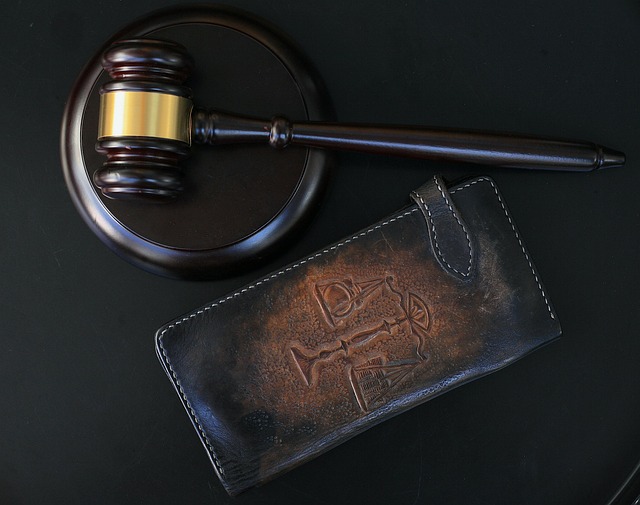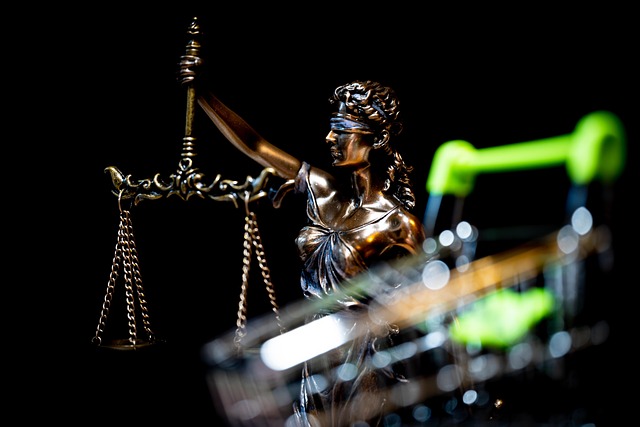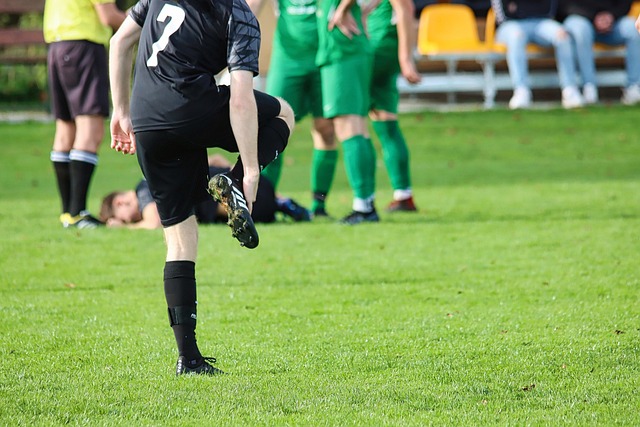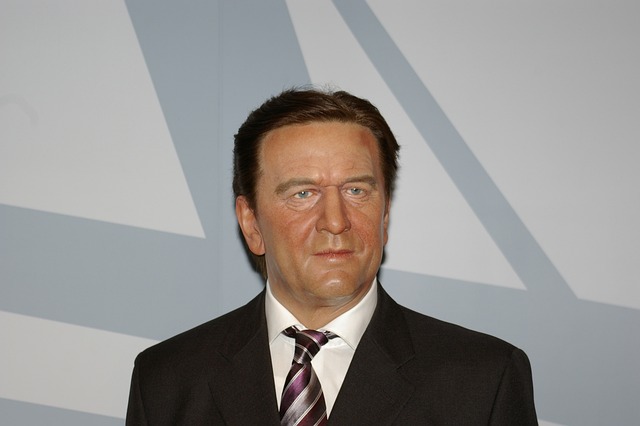Orlando Defective Product Lawyer: Your Rights & Compensation Guide

Consumers in Orlando, Florida, affected by defective products have legal recourse through specialize…….
In the intricate world of legal services, specialized areas of practice emerge to address unique challenges. One such niche is the Orlando defective product lawyer, a legal expert dedicated to protecting consumers and businesses affected by faulty or dangerous goods. This article aims to provide an in-depth exploration of this vital field, covering its definition, global impact, economic implications, technological developments, regulatory frameworks, and future prospects. By delving into these aspects, we will uncover the significance of Orlando defective product lawyers and their role in ensuring product safety and accountability.
An Orlando defective product lawyer is a legal professional specializing in representing clients who have been harmed by defective or unsafe products. These lawyers navigate complex laws and regulations to secure justice and compensation for individuals or entities suffering from product-related injuries or losses. Their expertise lies in interpreting product liability laws, which hold manufacturers, distributors, and sellers accountable for any defects that lead to harm.
The practice of Orlando defective product law encompasses several key components:
Product Identification: Lawyers must first identify the defective product and determine its manufacturer or seller. This involves tracing the product’s supply chain to establish liability.
Liability Analysis: Understanding the applicable laws and determining which party is liable for the defect is crucial. This may include product recall notices, design flaws, manufacturing errors, or inadequate warnings.
Client Representation: Lawyers represent clients through negotiations, mediations, or litigation. They advocate for their clients’ rights to fair compensation and ensure that responsible parties are held accountable.
Compensation Claims: Defective product lawyers assist clients in filing claims for damages, which can include medical expenses, lost wages, pain and suffering, and property damage.
The concept of product liability law has evolved over time, with significant milestones shaping the field:
1963 – Greenman v. Yuba Power Products: This landmark case in California established the rule that manufacturers have a duty to ensure their products are safe for use, and consumers can sue for negligence if harmed by defects.
1970s – Expansion of Product Liability Laws: Many states in the US enacted strict liability laws, inspired by the idea that product safety is a shared responsibility. This period saw a significant increase in defective product litigation.
1986 – U.S. Consumer Product Safety Act (CPSA): The CPSA introduced federal regulations for product safety, giving the Consumer Product Safety Commission (CPSC) the authority to regulate and enforce safety standards.
Global Harmonization: International efforts have led to the harmonization of product liability laws, particularly through the UN’s Convention on the Liability of Manufacturers for Damage Caused by Their Products (1986). This has facilitated cross-border legal processes and unified standards.
The influence of Orlando defective product law extends far beyond Orlando, Florida, with significant global implications:
Uniform Standards: Many countries have adopted standardized product liability laws, ensuring consistency in holding manufacturers accountable for defects.
Cross-Border Cases: With the rise of e-commerce and global supply chains, defective product cases often traverse borders. Lawyers must navigate international laws and regulations to represent clients effectively.
International Organizations: Global bodies like the World Trade Organization (WTO) and the International Organisation for Standardisation (ISO) play a role in setting product safety standards, influencing legal frameworks worldwide.
| Trend | Impact and Observations |
|---|---|
| Product Recalls and Safety Alerts | Increased product recalls due to defects have led to heightened consumer awareness and stricter regulations. Lawyers must stay updated on these alerts to identify potential cases. |
| Strict Liability Laws | Many jurisdictions impose strict liability, eliminating the need for proving negligence. This trend holds manufacturers strictly accountable for defective products. |
| Product Safety Technologies | The adoption of advanced safety technologies, such as IoT devices and AI-driven quality control, presents new challenges and opportunities for product liability cases. |
| E-commerce Growth | Online sales have led to complex supply chains, making it easier for manufacturers to avoid responsibility by shifting blame onto intermediaries. Lawyers must be adept at tracing product origins. |
| Global Standardization | Harmonized product safety standards facilitate international trade but also present challenges in proving liability across borders. |
The Orlando defective product law market is dynamic and influenced by several factors:
Product Recall Costs: Manufacturers often incur significant costs for product recalls, which can impact their bottom line and influence future product safety practices.
Legal Expenses: Defective product cases often result in high legal fees, deterring some clients while attracting others seeking justice.
Consumer Confidence: Public trust in products and brands is vital for economic growth. Successful defective product lawsuits can restore consumer confidence and encourage manufacturers to improve safety standards.
Lawyers and investors alike take note of trends in the defective product law sector:
Specialized Law Firms: There is a growing trend towards specialized law firms focusing exclusively on product liability cases, attracting clients with their expertise and successful track records.
Investment in Product Safety Technologies: Investors are increasingly funding technologies aimed at improving product safety, which can lead to fewer defects and a decrease in litigation.
Risk Management for Manufacturers: Companies are investing in comprehensive risk management strategies, including improved testing, quality control, and legal consultations, to mitigate potential liability.
Technology plays a pivotal role in shaping the practice of Orlando defective product law:
Digital Evidence: The advent of digital forensics allows lawyers to analyze electronic data, such as product design files and communication logs, to build stronger cases.
Advanced Product Testing: Technologies like 3D printing and rapid prototyping enable more efficient testing and analysis of products, aiding in liability determination.
IoT and Connected Devices: The Internet of Things (IoT) introduces new challenges and opportunities. Lawyers must consider the potential for defective connected devices to cause harm and navigate related legal complexities.
Emerging technologies offer both challenges and opportunities:
AI and Predictive Analytics: Artificial Intelligence can predict product failures by analyzing vast data sets, enabling proactive safety measures and potentially reducing the need for litigation.
Blockchain for Supply Chain Transparency: Blockchain technology provides an immutable record of product origins, making it easier to trace defects back to their source and hold responsible parties accountable.
Virtual Reality (VR) for Product Demonstrations: VR can be used to recreate accident scenarios, providing a powerful tool for lawyers to present cases and demonstrate product defects.
The legal landscape for Orlando defective product law is shaped by various policies and regulations:
U.S. Legal Framework: The U.S. follows state-level product liability laws, with significant variations across states. The Uniform Commercial Code (UCC) provides a common set of rules for sales transactions.
Consumer Product Safety Act (CPSA): Enforced by the CPSC, this federal law sets safety standards and requires manufacturers to report defects and recalls.
International Treaties and Agreements: Bilateral and multilateral agreements, such as the WTO’s Technical Barriers to Trade (TBT) Agreement, influence product safety regulations worldwide.
Regulatory frameworks have a profound impact on the practice of Orlando defective product law:
Liability Caps: Some jurisdictions impose limits on the amount of compensation awarded in product liability cases, which can affect lawyers’ strategies and clients’ expectations.
Product Safety Standards: Strict regulations encourage manufacturers to prioritize product safety, potentially reducing the number of defects and the need for legal action.
Regulatory Compliance: Lawyers must stay updated on changing regulations to ensure their clients’ products comply with standards and avoid potential litigation.
Orlando defective product lawyers face several challenges:
Complex Liability Determinations: Proving liability in complex cases, especially involving emerging technologies or novel products, can be challenging due to the lack of established precedents.
Multijurisdictional Cases: Cross-border cases require navigating different legal systems and languages, increasing complexity and potential delays.
Evolving Technologies: Keeping up with rapid technological advancements and their legal implications is a constant challenge, requiring continuous professional development.
Criticisms of the current system offer insights into areas for improvement:
Lengthy Litigation Processes: Critics argue that court proceedings are too slow, which can be detrimental to clients’ financial stability and public interest. Implementing alternative dispute resolution methods could streamline processes.
Inconsistent Case Outcomes: Variations in case outcomes across different jurisdictions create uncertainty. Standardizing legal procedures and promoting judicial cooperation can enhance consistency.
Industry Lobbying: Manufacturers often lobby against strict product safety regulations, which can undermine the legal protections intended for consumers. Increased public awareness and transparent lobbying practices are necessary.
In 2015, Volkswagen (VW) was at the center of a global scandal when it admitted to installing “defeat devices” in millions of diesel vehicles worldwide. These devices manipulated emissions tests, making cars appear cleaner than they actually were. Orlando defective product lawyers played a crucial role in this case:
Impact: The scandal led to massive recalls and significant financial losses for VW. Many owners sought compensation for the diminished value of their vehicles.
Legal Strategies: Lawyers faced challenges in proving fraudulent intent but utilized documents, emails, and expert testimony to demonstrate VW’s knowledge of the defeat devices.
Outcomes: Several class-action lawsuits were settled, with VW paying billions in fines and compensation. This case set a precedent for holding manufacturers accountable for deceiving consumers.
The largest product recall in automotive history involved defective air bags manufactured by Takata Corporation, which could explode upon deployment, causing severe injuries or death. Orlando lawyers were instrumental in this crisis:
Recall and Liability: The CPSC and NHTSA initiated a massive recall of vehicles equipped with Takata air bags, leading to numerous lawsuits against manufacturers and suppliers.
Complex Liability Issues: Lawyers faced the challenge of proving causation between the defective air bags and injuries, given varying conditions in different vehicles.
Class Action Success: A significant class-action settlement was reached, providing compensation to affected consumers. This case highlighted the power of collective action for consumers harmed by defective products.
The future of Orlando defective product law holds several promising growth areas:
Emerging Technologies: As new technologies like autonomous vehicles and advanced medical devices gain popularity, lawyers will face unique challenges and opportunities related to their safety and liability.
E-commerce and Digital Products: With the rise of digital products and online services, defining defects and establishing liability in these cases will require innovative legal strategies.
International Expansion: The increasing globalization of product distribution may lead to more complex multijurisdictional cases, requiring lawyers to adapt their practices for a global audience.
Several trends are set to shape the industry:
AI-Driven Legal Services: Artificial Intelligence will assist in case analysis, research, and document review, improving efficiency and accuracy in Orlando defective product law firms.
Preemptive Lawsuits: Manufacturers may face more proactive legal actions as consumers and lawyers take a more aggressive approach to hold companies accountable for potential future harms.
Digital Evidence and Blockchain: The use of digital evidence and blockchain technology will enhance the credibility of cases and streamline proof of liability.
The Orlando defective product lawyer plays a vital role in ensuring consumer safety, holding manufacturers accountable, and fostering responsible innovation. As the legal field continues to evolve, these professionals must adapt to emerging technologies, global trends, and changing regulatory landscapes. By staying at the forefront of these developments, they can contribute to a safer and more accountable product ecosystem, protecting consumers and promoting economic growth.
Q1: What is the process for filing a defective product lawsuit?
A: The process involves several steps: identifying the defective product, gathering evidence, consulting an attorney, filing a claim, negotiating or litigating, and potentially reaching a settlement or verdict.
Q2: How do I know if my product is considered defective?
A: A product can be deemed defective if it deviates from its intended design or performance, causing harm or damage to users. This may include manufacturing defects, design flaws, inadequate warnings, or failure to meet safety standards.
Q3: Can I sue for a product that caused minor injuries?
A: Yes, in many cases, even minor injuries caused by defective products can be grounds for a lawsuit. The extent of damages and the impact on the victim’s quality of life are considered, not just the severity of physical injuries.
Q4: How long do I have to file a defective product lawsuit?
A: Time limits vary by jurisdiction and type of case. In general, consumers have 2-4 years from the date of discovery or when they should have reasonably known about the defect. It’s crucial to consult a lawyer for specific time frames.
Q5: What role does product liability insurance play?
A: Product liability insurance protects manufacturers and sellers by covering legal fees and damages in case of defective product claims. It helps businesses manage risks associated with product liability lawsuits.

Consumers in Orlando, Florida, affected by defective products have legal recourse through specialize…….

In Orlando, consumers harmed by defective products have legal recourse under strict local laws, with…….

In Orlando, burn injury victims need an Orlando defective product lawyer for complex claims involvin…….

Product liability law in Florida, especially in Orlando, holds manufacturers, distributors, and sell…….

In Orlando, Florida, defective products pose significant risks, leading to injuries and deaths due t…….

In cases where products fail safety standards or are falsely advertised, causing harm, an Orlando de…….

Defective products can cause serious harm or even fatalities. An Orlando defective product lawyer ho…….

In Orlando or nationwide, defective products pose significant safety risks leading to injuries and e…….

In Orlando, individuals injured by defective products can find legal support from specialized Orland…….